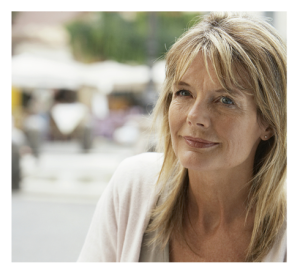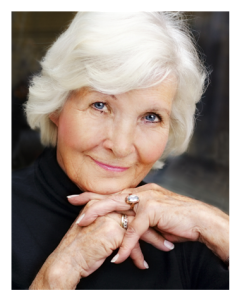“Early to bed, early to rise… makes a man healthy, wealthy, and wise.”
 I remember these words from childhood – and was skeptical of their applicability to what I cared about, even then.
I remember these words from childhood – and was skeptical of their applicability to what I cared about, even then.
Now you might argue that the sole purpose of this saying is to encourage a full night’s sleep, especially for a child with a preference for staying up past midnight. But what about the notions of “healthy, wealthy, and wise?”
Dismissing the gender bias, as all things were gender biased in the 60s, let’s hop, skip, and jump to the heart of the matter and for me, that’s wisdom.
Now that’s an intriguing topic, isn’t it? Don’t we make all sorts of assumptions about who is wise and how they got that way? What truly lies at the source of wisdom? Why do some seem to possess it even when young, and others never will?
Early to Bed, Early to Rise… What Makes Us Wise?
I’m not denying the “wisdom” in sleep; it helps us learn, process, renew, and maintain perspective. We know a good deal about the importance of sufficient sleep to our physical and mental health. However, I doubt that the schedule by which I lay my head to rest (and pick it back up again) has much to do with any sagesse that I may have on hand.
If you ask me, experience grants wisdom – but only if we have the ability to transform that experience and infuse it with awareness, context, and a very honest eye.
A recent Times column, “The Science of Older and Wiser,” explores the concept of wisdom, in particular with regard to age, and the quality of information that appears in the “older brain.”
Of note in the article, first and foremost:
… wisdom consists of three key components: cognition, reflection and compassion.
Older and Wiser? Not Necessarily
And I find myself nodding my head, in particular at the willingness to examine the life we’re leading and yes, the compassion with which we can apply our lessons to others in helpful ways. Yet we must also be able to discern when our experience is irrelevant.
While this article delves into the science of wisdom as its title suggests, the element of compassion is compelling. For simplicity’s sake, let’s take compassion to mean sympathy for and sensitivity to others.
When I consider my mother, a woman with a brilliant mind and a life that was rich in experience, her communications were devoid of compassion, often taking form in judgment, self-aggrandizement, and a narrow perspective. This was her norm despite travel, study, and a hunger for knowledge. Although she returned to school in her thirties while raising children, explored the world on her own in her forties and fifties, then returned to school again in her sixties – what could have been wisdom was anything but.
Admitting that I am not an objective source in this matter, I can nonetheless think back on her inability to move beyond her own frame of reference. Consequently, she was older and more knowledgeable, but not necessarily older and wiser.
Wisdom by Subject Matter
After taking my own stab (above) at what wisdom means to me, I venture into a more official definition, which is:
… knowledge that is gained by having many experiences in life; the natural ability to understand things that most other people cannot… good sense or judgment…
Knowledge? Sure, we buy that. Knowledge by way of experience suggests the ability to discern subtleties and, we tend to assume, compassion.
So what about wisdom having to do with specific subject matter? Again using my mother as an example, could she have had wisdom to share with regard to subjects such traveling over 40 or navigating the educational system? Could she have had personal experience to share about marriage, but no wisdom on that score, as a result of that experience and an absence of something else?
When Does Experience Become Wisdom?
Knowledge is not the same as the ability to apply it. Experience doesn’t automatically endow us with the ability to interpret nuance. “Good judgment” in one area may imply a broader sensibility, but in my mother’s case (for example), she recognized subtlety in some areas while insisting on a woefully black and white view in others.
In contrast, an 85-year-old woman with whom I spend time offers none of the overbearing declarations that were part of my mother’s psychological makeup. If anything, my octogenarian companion’s experience seems to leave her wide open – to humor, acceptance, and a gracious absence of judgment when it comes to anyone but herself.
 She has knowledge to impart – and experience – which she does, with compassion. She possesses wisdom, which surely is an element of the pleasure I take in our time together.
She has knowledge to impart – and experience – which she does, with compassion. She possesses wisdom, which surely is an element of the pleasure I take in our time together.
The Older Brain is a Potentially Wiser Brain
While the article in the Times helps us understand that the older brain is more capable of recognizing the subtleties acquired through experience, age alone does not yield wisdom. Not by a long shot. And of course, some young people seem to be “wise beyond their years,” innately empathetic and capable of seeing beyond the obvious.
Citing Ursula Staudinger, psychologist and professor at Columbia University, wisdom is far more complex than the simplistic dictionary definition would lead us to believe.
True personal wisdom involves five elements… self-insight; the ability to demonstrate personal growth; self-awareness…; understanding that priorities and values, including your own, are not absolute; and an awareness of life’s ambiguities.
Are You Wise?
Considering Professor Staudinger’s five factors for wisdom, my mother fell down on the first, third, and fourth, this last being, in my opinion, the most fundamental when it comes to establishing connections to others and also, essential to personal growth.
Clearly, psychological makeup is critical to one’s ability to gain or impart wisdom – appreciating situational subtlety, knowing when to speak up and when to keep silent, and exercising judgment along with compassion.
Naturally, I find myself pondering aspects of my own experience and personality. I wonder if I’ve gained wisdom as a result of the former and facilitated by the latter. I suppose the jury is still out, but I’d like to think I’m headed that way.
You May Also Enjoy
The “honest eye.” We don’t hear enough about it. And you’re right about its utility. And age alone doesn’t yield wisdom–oh yeah! Priorities and values are not absolute–another good one. I have to bookmark this post because it’s got so much good stuff.
I wonder about this myself – am I wise? What do I have to share and/or impart? Do I know when to keep my mouth shut? Do I show enough compassion? I certainly feel more and more intuitive about people – that comes, I’m sure, from experience and trusting my gut. Always learning. Love travel. I’m on my way. I’m grateful. I love. These, add to that pot of wisdom, that well.
Loved this post and it’s many thought provoking questions, D. A.
Now that I’ve hit 50, I no longer see things in black and white so much. Through absorbing and learning from more life experiences, I’ve developed even more compassion for others. I’ve come to realize that people are limited by the mindsets and filters they hold onto and many times they cling to the familiar due to intense fears of change and facing the unknown.
Cognition, reflection and compassion? I thought I just obtained wisdom as I aged like osmosis! Oh well back to the drawing board.
Wow. Now that gave me quite a lot to think about. Throughout your fantastic piece I was thinking…”wisdom also has to be not only towards others but one’s self” and BAM! The five elements arrive. Whew. Again, a lot to think about…merci.
Wonderful post! It’s so true that knowledge is not the same as wisdom. I know many a PhD that are extremely book smart….but very lacking in wisdom and common sense. I agree with Ursula Staudinger’s definition of wisdom and would add one more factor. To be truly wise, a person must operate from a strong moral base that allows them to be able to discern the most important aspects of those experiences and knowledge. Thank you for giving us a piece of your wisdom today! 🙂